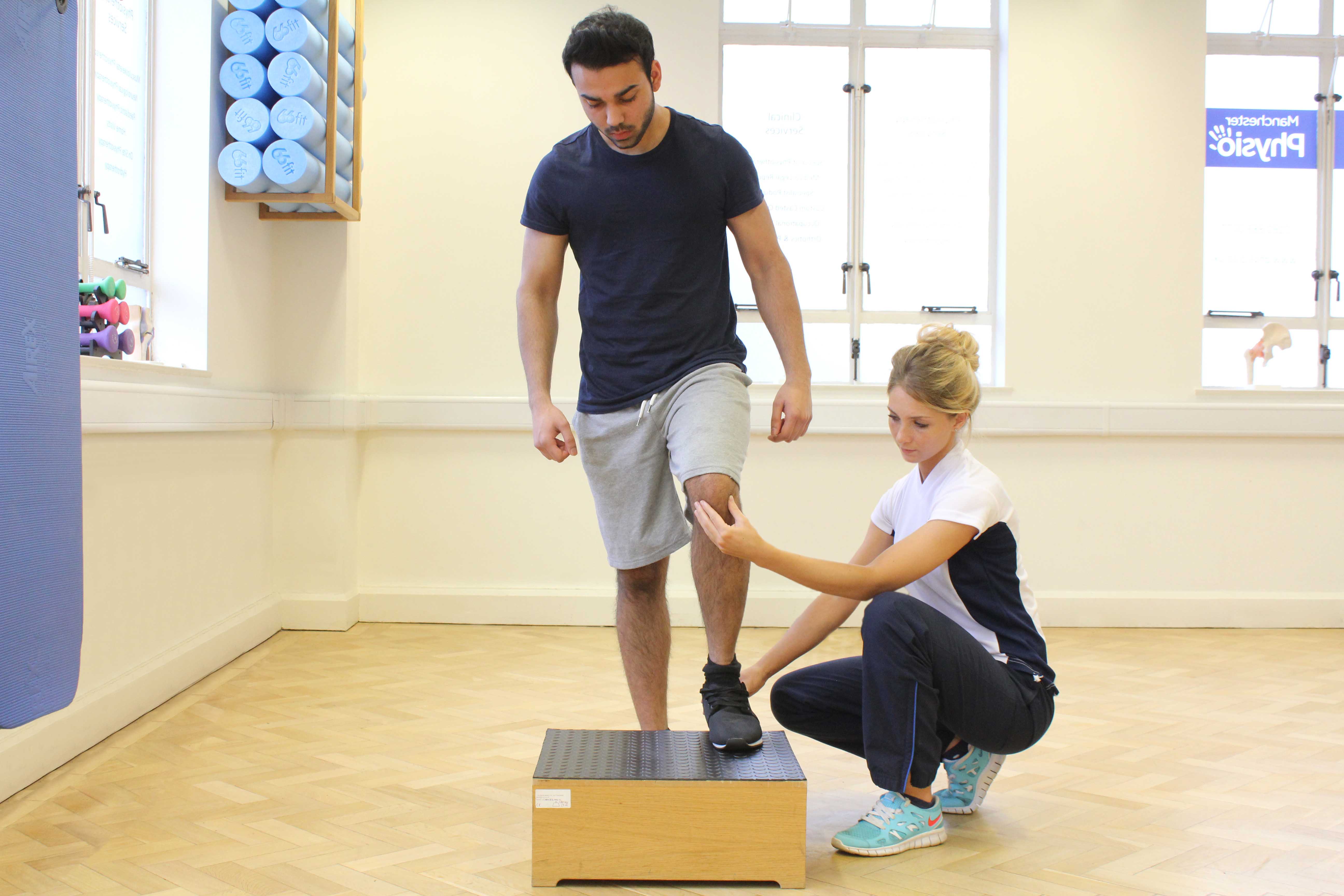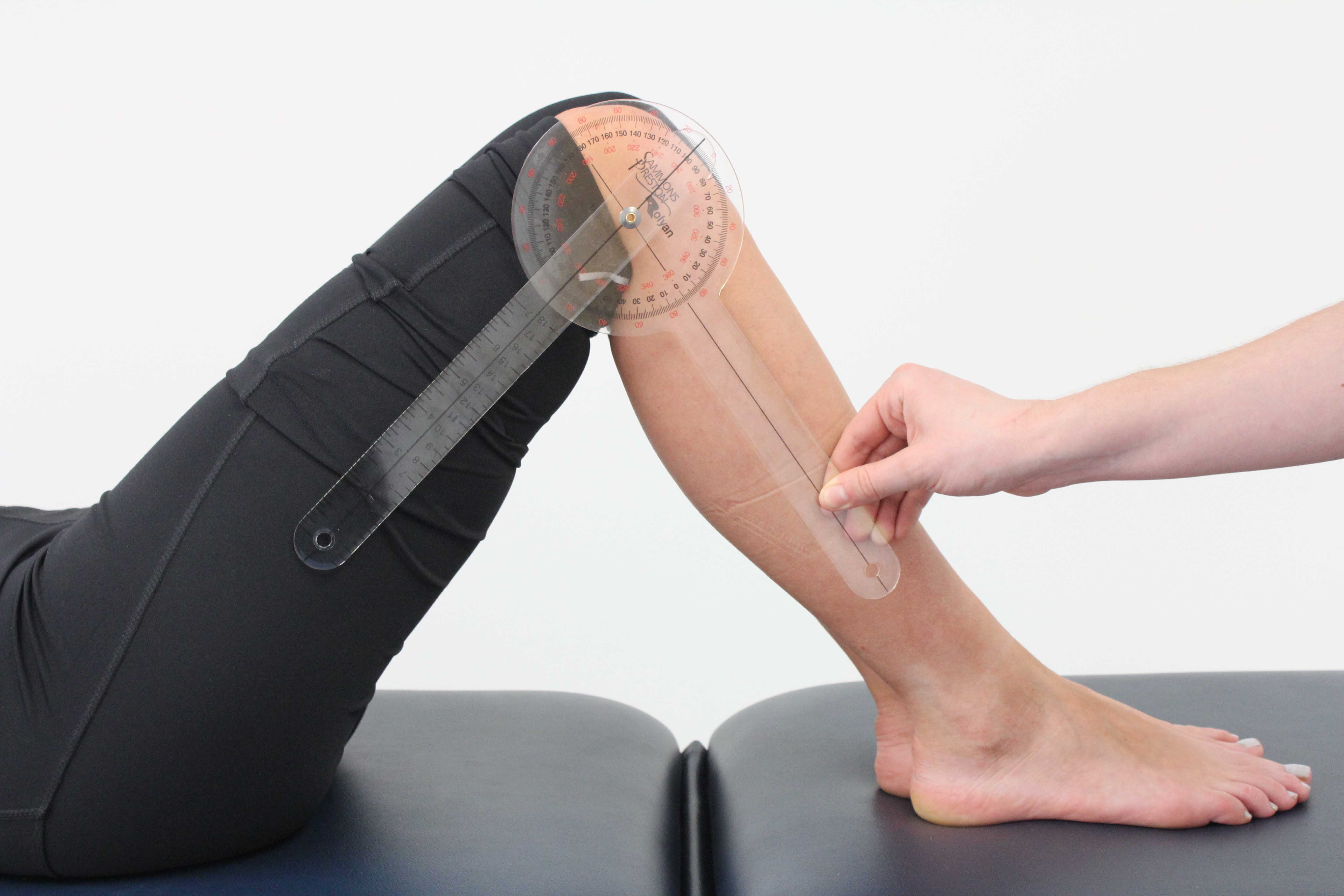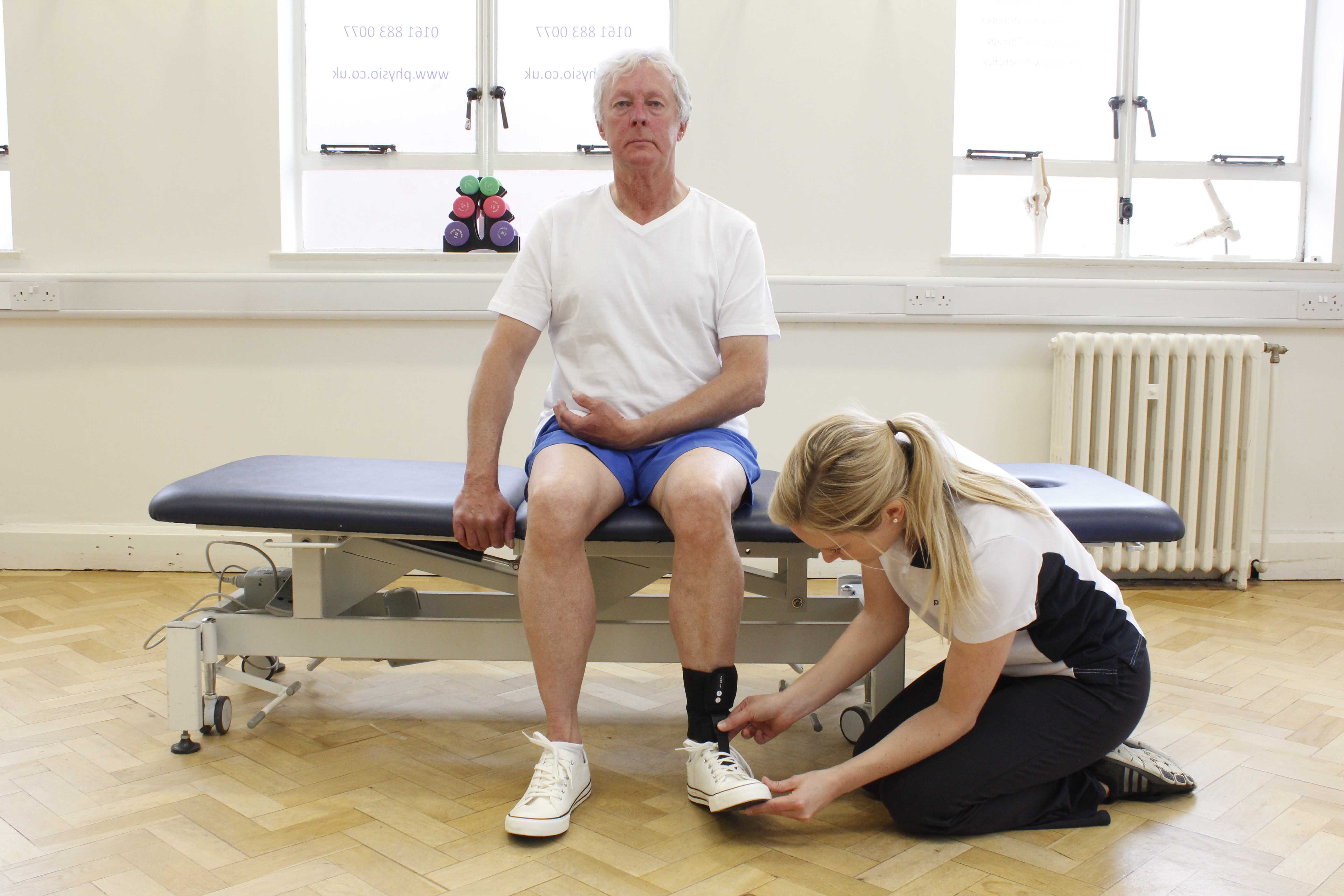 Above: Specialist MSK therapist assisting step assent practice to reduce clients mobility limitations
Above: Specialist MSK therapist assisting step assent practice to reduce clients mobility limitationsWhat are the causes of immobility?
Immobility can be due to a number of reasons which can be psychologically or physically triggered. Some of the common reasons for immobility are:
- Amputations
- Aging process
- Obesity
- Depression
- Anxiety
- Terminal illnesses
- Malnutrition
- Neurological conditions
How can Physiotherapy help?
Physiotherapy can offer a coaching strategy for those who have psychological issues related to mobility. Whereas with those who have physical conditions where mobility is restricted or unable then the following can help:
- Maintenance of joint integrity
- Muscle length maintenance
- Positional advice (pressure sore prevention)
- Equipment advice (hoists, beds)
- Bed exercises
- Manual handling advice
- Improve quality of life
 Above: Monitouring lower limb mobility using a goniometer
Above: Monitouring lower limb mobility using a goniometerWhat types of Physiotherapy Treatments can be expected for immobility?
Dependent upon the reason for immobility and the clients ability will depend which treatment techniques can be used. Some of the treatments include:
- Coaching and encouragement strategies
- Goal setting
- Passive range of movement
- Active range of movement
- Active assisted range of movement
- Bed exercise
- Manual handling training
 Above: Orthotic to prevent the immobility of the ankle from limiting the clients normal movement
Above: Orthotic to prevent the immobility of the ankle from limiting the clients normal movementSummary
Immobility can lead to deterioration in a person’s health. With the treatment and advice from an experienced Physiotherapist from Physio.co.uk maintenance and improvements can be made with client compliance. The health of the carers can also benefit from the physiotherapist’s input from manual handling technique training. Please contact us or call 0330 088 7800 to arrange an appointment.

 0330 088 7800
0330 088 7800

































